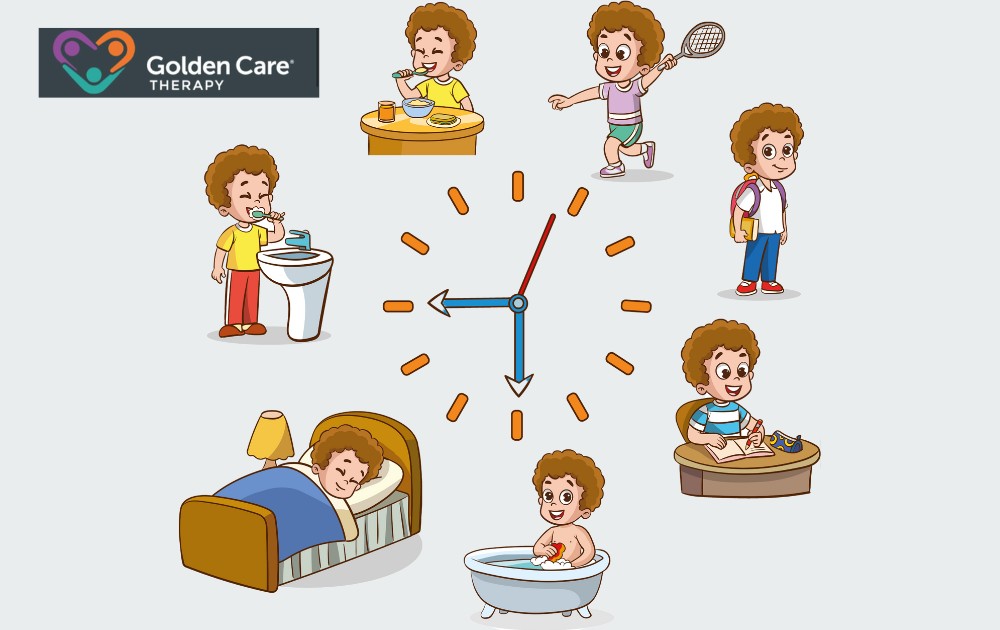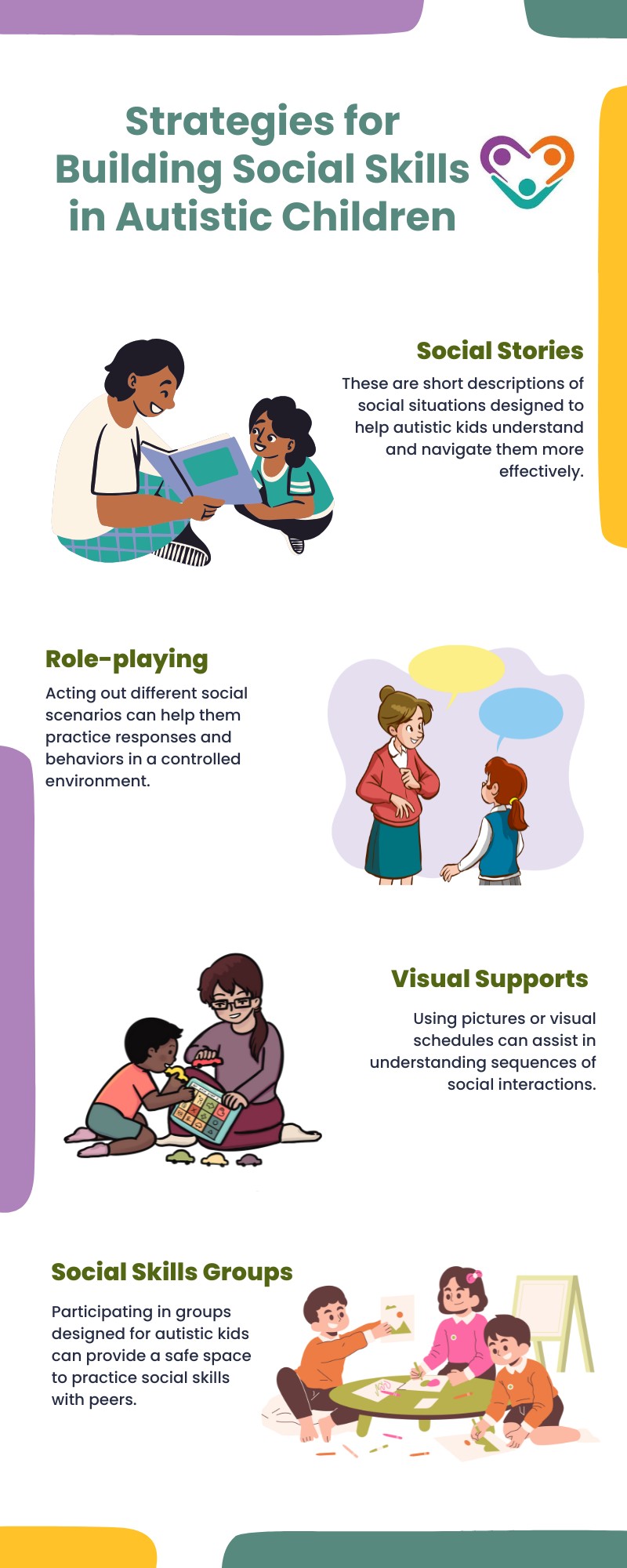Understanding the daily living challenges faced by autistic kids is essential for parents and caregivers. These challenges can vary widely but often include difficulties with sensory sensitivities, communication, routines, social interactions, behavior management, and schooling. Recognizing and addressing these issues can significantly improve the quality of life for children with autism and their families.
To better grasp the daily hurdles that autistic kids encounter, it’s crucial to break down the frequent difficulties they face.
Understanding these challenges can equip parents and caregivers with the knowledge and tools needed to support their children effectively. Recognizing the unique needs of each child and implementing strategies for managing these challenges can make a significant impact on their everyday lives.
Sensory Sensitivities
Autistic kids, including those with high-functioning autism, often experience sensory sensitivities, which can significantly impact their daily lives. Sensory challenges commonly manifest as sensory overload, hypersensitivity, and hyposensitivity.
Sensory overload occurs when an autistic child is overwhelmed by stimuli from their environment. This can include sounds, lights, smells, and textures. Too much sensory input can lead to intense stress and anxiety, making it difficult for the child to focus or interact with others.
Meanwhile, hypersensitivity refers to an increased sensitivity to sensory stimuli, while hyposensitivity is a decreased sensitivity. Both types of sensitivity can present unique challenges for autistic kids.
Children with hypersensitivity might find normal sensory inputs overwhelming. They could be particularly sensitive to certain textures, sounds, or lights, leading to discomfort or avoidance behavior.
Conversely, children with hyposensitivity may seek out more intense sensory experiences. They might not respond to typical sensory inputs, requiring stronger stimuli to feel satisfied.
Managing sensory sensitivities requires understanding each child’s unique needs and triggers. Sensory-friendly environments and individualized strategies can help minimize daily challenges for autistic kids.
Communication Difficulties
Effective communication can be a significant hurdle for autistic kids. These difficulties manifest in different ways, including challenges related to verbal and non-verbal communication.
Verbal communication challenges are prevalent among autistic children. These hurdles can range from delayed speech development to difficulties in expressing themselves clearly. Some children may have limited vocabulary, while others might struggle with appropriate sentence structures or maintaining a conversation.
In addition to verbal communication challenges, non-verbal communication barriers are also common. Autistic children might find it difficult to interpret body language, facial expressions, and other non-verbal cues. This can make social interactions even more complex.
Understanding these communication barriers allows parents and caregivers to adopt strategies to support autistic kids in overcoming these common daily challenges, ultimately helping them to improve their social and communication skills.

Routine and Transitions
For individuals with autism, routines can be incredibly important. A structured daily schedule helps provide predictability and a sense of security. Establishing consistent routines can reduce anxiety and make daily activities more manageable.
Transitioning from one activity to another can be challenging for autistic children. Changes, even small ones, can cause distress and emotional upheaval. Understanding and preparing for these difficulties can help in managing transitions more effectively.
Needless to say, routine and transitions are integral parts of daily life that can pose common challenges for autistic kids. By creating structured routines and planning for transitions, parents and caregivers can help alleviate some of these difficulties.
Social Interactions
Social interactions can be one of the most complex areas for autistic kids to navigate. Understanding these challenges and finding ways to build social skills are essential for their development and well-being.
Autistic kids often face difficulties in various social situations. These challenges stem from differences in understanding and processing social cues, such as body language, facial expressions, and tone of voice. These difficulties can lead to misunderstandings, frustration, and social isolation.
Common social interaction challenges include:
- Difficulty making eye contact
- Trouble interpreting facial expressions
- Challenges in understanding the concept of personal space
- Hesitance in initiating or maintaining conversations
- Misunderstanding social rules and norms
These challenges can result in the child appearing disinterested or disengaged, even though they may have a strong desire to connect with others.
Also, building social skills is crucial for enhancing the quality of life for autistic kids. Developing these skills involves targeted interventions and consistent practice. Some effective strategies include:

Engaging in consistent practice and receiving positive reinforcement can significantly help autistic kids improve their social interaction abilities.
Addressing these social interaction challenges with patience and understanding can help autistic kids feel more comfortable and confident in social settings, ultimately leading to a more inclusive and supportive environment for them.
Behavior Management
Managing behavior is a common daily challenge for autistic kids, involving understanding and addressing meltdowns and shutdowns while employing effective coping strategies.
Meltdowns and shutdowns are distinct responses to overwhelming situations. Meltdowns are intense emotional outbursts, often marked by crying, shouting, or physical actions. Shutdowns, on the other hand, involve a withdrawal where the child may become non-responsive or retreat into silence.
These episodes can be triggered by sensory overload, routine disruptions, or social stress.
Fortunately, effective coping strategies can help manage these responses and reduce their frequency and intensity. Such strategies include:
- Providing sensory toys or tools can help in calming and focusing.
- Establishing and maintaining a consistent routine can provide a sense of security.
- Utilizing visual aids or communication devices can reduce frustration.
- Creating a designated safe space where the child can retreat when feeling overwhelmed.
With the help of these strategies, parents and caregivers can better support autistic children in managing their daily challenges.

Conclusion
Navigating the daily challenges of life can feel like an uphill climb for autistic kids, but with patience, understanding, and support, those challenges can turn into opportunities for growth. Every small step forward is a victory worth celebrating. By creating an environment filled with compassion and tailored strategies, we can help pave the way for their unique strengths to shine.
The journey may not always be smooth, but it is one filled with immense potential and moments of joy that remind us of the incredible resilience and individuality of these kids. At Golden Care Therapy, we are dedicated to providing exceptional ABA therapy in New York, New Jersey, Indiana, Georgia, and Florida.
Our team focuses on personalized, compassionate care to help children thrive in their unique ways. Reach out to us today to learn how we can support your family on this journey. Let’s work together to unlock your child’s full potential.
Sources:



